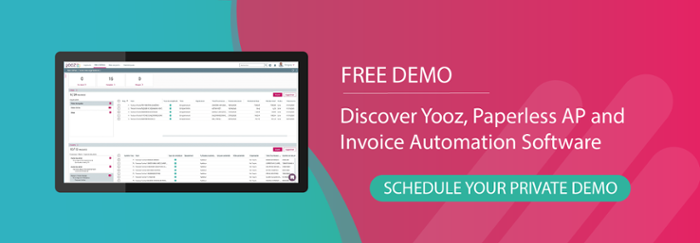There are a few key factors when it comes to building up long-term, successful working relationships with suppliers. Communication is central to everything, as things can quickly become a disaster without all parties speaking timely and openly. The way you communicate can also be key in relationships, with others expecting to be treated professionally at all times no matter what the situation. Time is another factor, as no one wants to look like the bad guy constantly chasing payments when deadlines are missed.
Simply put, the value and importance of supplier relationship management (SRM) in accounts payable cannot be stressed enough, as a working, mutual relationship between a business and its suppliers is key to growth for both sides. The choice of vendors, suppliers, and partners creates a large piece of the puzzle that helps create supply chain, finance, and business success. What’s more, with an increasing focus on how businesses operate sustainably, evaluating vendors that provide your organisation with goods and services is also one of the most important steps in reaching Net Zero Carbon goals.
What is Supplier Relationship Management (SRM)?
To understand the importance of an SRM strategy it's important to understand the definition. Supplier Relationship Management, or SRM for short, makes up the interactions between a business and its suppliers. These will typically be third-party vendors that provide some sort of services (ranging from software to recycling duties), goods (stationary or computer systems), or materials (steel, wood, or textiles) for the company at a price that suits both sides. The term SRM differs from CRM (Customer Relationship Management) in that it focuses solely on the needs and actions for third-party suppliers and vendors, rather than that of the customers. For example, while an SRM software solution will allow you to see which vendors have been paid and if they have been paid on time, it won’t show you customer-related information such as if they read your email newsletter or how the sale took place.
SRM sounds simple enough, yet as a business grows, the supplier list grows alongside it. Keeping each vendor happy therefore becomes a much more challenging task. For example, while an organization might choose certain suppliers because they are time or cost-efficient, as the business grows it might require other goods and services outside of what is already being received. However, if hte budget for acquiring goods is still tight, it might take a few negotiations with vendors in order to get to where it needs to be.
Talking about money is always a difficult conversation but constant and clear communication pays in the long run. Suppliers make money from repeat business (just think how so many software companies have changed their business model from one-time purchases to providing software as-a-solution). Recurring revenue looks a lot healthier on the balance sheet than one-off sales, and vendors will appreciate long-term contract deals even if it means sometimes playing hardball.
Why is it important to manage supplier relations?
The importance of creating and nurturing long-term healthy relationships with your suppliers cannot be understated, as they can have a significant impact on the success of the business. Working with trusted, quality suppliers means the business can grow fast, whereas unreliable vendors means risk as the business may have to constantly work through issues or bottlenecks as well as the impact it may have on its customers. The end-goal is to work with suppliers that fit the needs and culture of the business while creating long-lasting relationships.
As with most working relationships, paying suppliers on time and at the right price is one of the most important aspects to pay attention to. Think how your staff would react if they found out they weren’t paid at the end of the month like they were supposed to, with mortgages to pay and families to feed. Suppliers can often be in the same boat, with their own staff and suppliers to pay, which makes paying on time even more important. In this sense, it helps to treat your vendors like your own staff, or even customers, to form a healthy relationship.
As we mentioned before, communication is another vital aspect. So, for example, if payments cannot be made by a certain deadline or if there’s been an error in the finance system, make this clear as soon as possible to the vendor in order to avoid any confusion or pain on their side. While payments made on time are always preferred, good communication can be a saving grace if issues do arise.
The benefits of using Supplier Relationship Management software tools
To maintain these sometimes complex relationships, more and more businesses are choosing to deploy Supplier Relationship Management software tools. SRM software is typically used by procurement teams and departments to get granular-level detail into their suppliers that can make better-informed decision making as well as establish better business relationships with suppliers. For example, by using SRM software with an end-to-end automated accounts payable solution, you can see information such as who the supplier is, recent orders, price, and if payment is still to be sent or cleared. You can then start to control certain interactions if needed, measure supplier performance, and better evaluate vendors based on best price depending on what service or goods you require.
The other main benefit of using the system is harnessing and realising better supplier relationships. A better relationship means better work, so by utilising an SRM software tool, you can enhance the success of the business through its vendors - and not just by paying invoices on time. By highlighting areas of historic or cyclical spend - such as spending X amount on stationery every couple of months - you can use that to go to vendors and offer better cost terms based on being a loyal, paying customer.
SRM software has changed the game. Managing supplier relationships has been transformed from a major headache into something which can provide direct benefits and cost savings for the business, as well as making the process of getting paid easier for staff and vendors. Not only do you not have to worry that the suppliers you choose are the best fit for your business, but you can rest assured knowing that you’re paying the best price for the good and services you need thanks to actual data now available for better decision-making.








